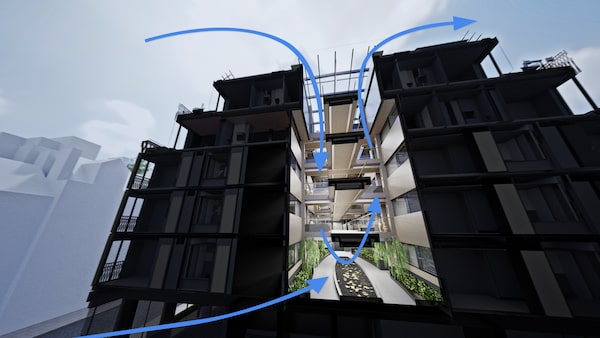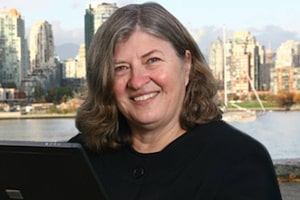
One of Canada's biggest developers is betting that, even after current pandemic restrictions and fears about contact subside, people will still want to live and work in places that provide more safety features for infectious diseases.Courtesy of Concord Pacific
One of Canada’s biggest developers is redesigning its next four major projects globally to add new “COVID-response amendments” that include touchless, WiFi-controlled elevators and doors, hospital-level air filtration, in-suite steam-cleaning closets and, in some cases, all-season balconies.
Concord Pacific will announce Thursday that three mixed-use projects in Vancouver, Seattle and London, as well as one office tower in Toronto, will now incorporate what it is calling its “bio-space initiative.”
The company is betting that, even after current pandemic restrictions and fears about contact subside, people will still want to live and work in places that provide more safety features for infectious diseases.
That will mean more tech innovations to make buildings touchless, more systems to ensure clean, fresh air and more open-plan spaces.
“We’re committed to these changes. They are logical changes for the new market,” said Peter Webb, Concord’s senior vice-president of development. “People would like to touch less surfaces, have steam cleaning and wireless access from their cars. These are going-forward ideas.”

Concord's post-pandemic design means more tech innovations to make buildings touchless, more systems to ensure clean, fresh air and more open-plan spaces.Courtesy of Concord Pacific
While the pandemic has many Canadian developers pondering design changes, most have not wanted to rush into anything significant until they see the long-term impacts on buyers’ choices and behaviour once the virus is contained.
Concord has decided to move ahead and has already redrawn the first two projects expected to be marketed and built: its Metrotown development in Burnaby, a suburb of Vancouver, and its Marylebone project in London.
The Metrotown complex is a redevelopment of part of Burnaby’s largest mall, which will include a large base of commercial retail space with three condo towers above.
The project’s new design will see the towers lifted so there is space on the roof of the commercial podium to put in a 66,000-square-foot outdoor park with a pool and walking and running track that is cantilevered over the street in places. The park would also include yoga spaces, hot tubs and, for those who want to use the park as a workspace, enclosed pods with desks.
As well, the balconies have been redesigned so they can incorporate sliding glass windows and ceiling heaters that will allow them to be “four-season” balconies that open to the outside in the summer, but are somewhat enclosed in the winter. This is a type of addition that many homeowners in Vancouver are already using in order to be able to entertain people in semi-outdoor spaces.
Both the Metrotown project and Seattle House will include steam-cleaning closets in condo units that “will kill up to 90 per cent of viruses and bacteria,” Mr. Webb said.
At the Marylebone Square project in London, the interior courtyard of the full-block building will be covered with glass. There will be exterior corridors on each floor around that central atrium that lead to people’s apartment doors. That will reduce the kind of enclosed spaces, such as lobbies and hallways, that people normally have to travel through.
At the office tower in Concord Park Place in Toronto, elevators will be organized so that people enter from one side, exit from the other.
In all four cities, parking garages will be WiFi-enabled so that people can use apps to open garage doors, elevators and whatever else is needed to make the trip from their cars to their apartment doors.
Mr. Webb acknowledged that some elements, such as the balcony system, will cost extra and have to be added to the price of units. But others are more a matter of just investing some time in rethinking certain elements.
“Some of the ideas here we’ve been integrating into buildings already but, here, we’re making a leap.”
Concord got its start with a massive redevelopment of vacated industrial land in Vancouver’s downtown peninsula after Expo 86.
The company is headed by Terry Hui, who obtained majority control in 1999 of the company that Li Ka-shing had started when he bought the Expo lands in 1988.
The company now has projects throughout the Vancouver region, as well as in Seattle, Calgary, Saskatoon, Toronto and London. It has also expanded into green-energy projects and telecommunications.
We have a weekly Western Canada newsletter written by our B.C. and Alberta bureau chiefs, providing a comprehensive package of the news you need to know about the region and its place in the issues facing Canada. Sign up today.
 Frances Bula
Frances Bula